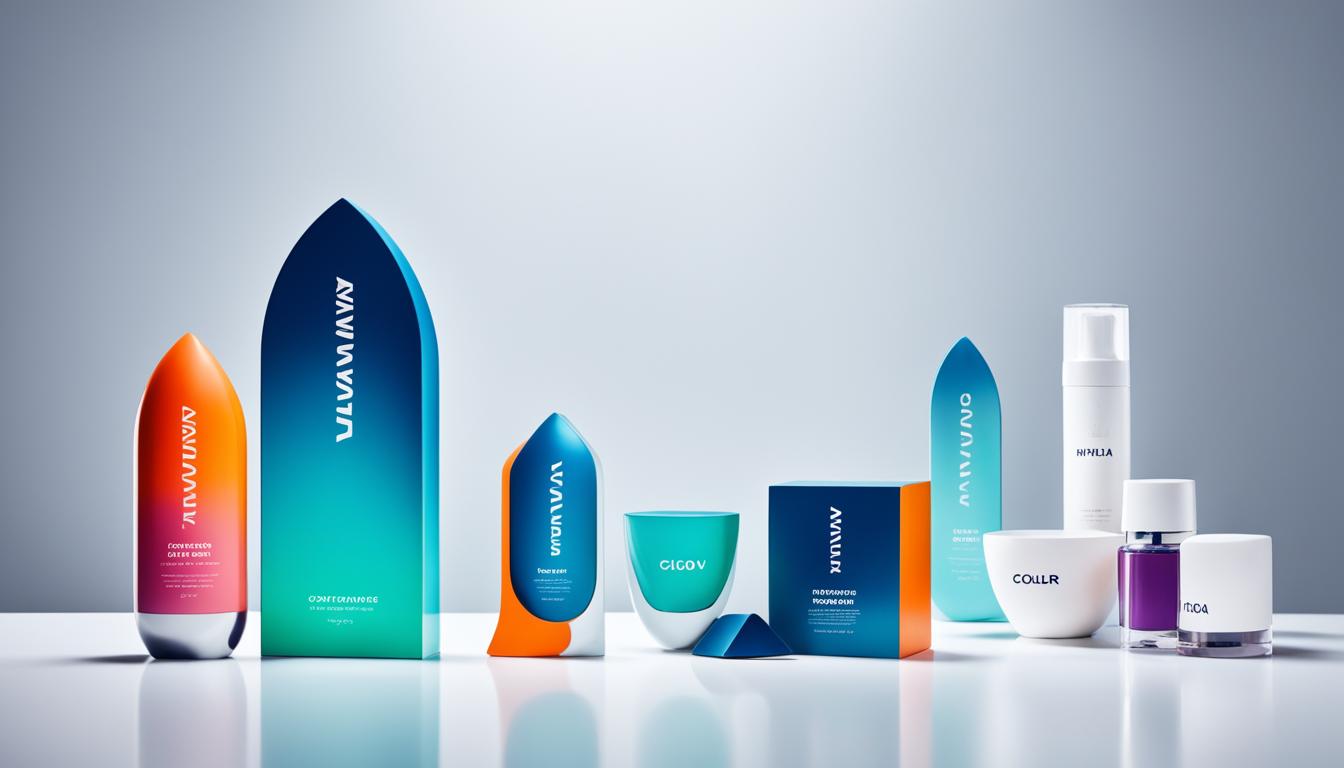
Differentiate or Die: Product Positioning Strategies for Startup Success

“Innovation distinguishes between a leader and a follower.” – Steve Jobs
In the highly competitive business landscape, startups face numerous challenges in achieving success. One key aspect that sets successful startups apart is their ability to effectively differentiate themselves from their competitors. By implementing strategic product positioning strategies, startups can establish a competitive advantage, attract their target market, and pave the way for long-term success.
In this article, we will delve into the importance of differentiation in startup success and explore effective strategies for product positioning. Whether you are a budding entrepreneur or an aspiring startup founder, understanding the power of differentiation can be the key to unlocking your true potential in the market.
Key Takeaways:
- Effective product positioning strategies are crucial for startup success.
- Differentiation sets successful startups apart from their competitors.
- Understanding the target market is essential for effective differentiation.
- Niche down, laddering, and sensory differentiation are powerful strategies for differentiation.
- Constant innovation and market expertise help maintain a competitive edge.
The Need for Differentiation in Startup Success
In today’s competitive marketplace, startups face numerous challenges to stand out and attract customers. With a multitude of options available to consumers, it is crucial for startups to differentiate themselves and find their product-market fit in order to succeed.
When startups fail to differentiate, they risk getting lost in the crowd and facing intense price competition. Without a distinctive offering, it becomes difficult to capture the attention and loyalty of potential customers.
To overcome these challenges and increase their chances of success, startups must prioritize differentiation. By offering something unique, startups can position themselves effectively and create a competitive advantage in the market.
Differentiation allows startups to break away from the pack, demonstrate their value, and captivate their target market. It enables them to showcase their strengths, solve customer problems in innovative ways, and create an emotional connection with their audience.
Without differentiation, startups become just another player in a crowded marketplace, struggling to attract customers and establish a strong foothold.
By focusing on differentiation, startups can distinguish themselves from their competitors and attract customers who resonate with their offering. It enables startups to effectively communicate their value proposition, highlighting what sets them apart in a sea of options.
Ultimately, differentiation is the key to surviving and thriving in the competitive startup landscape. It is the foundation upon which startups build their brand, position their products, and attract a loyal customer base. Without differentiation, startups run the risk of fading into obscurity.
Standing Out in a Competitive Marketplace
In a fiercely competitive marketplace, startups must find unique ways to stand out and capture the attention of their target audience. Differentiation is the driving force behind their ability to rise above the noise and attract customers. It allows startups to showcase their distinct qualities and value proposition, setting them apart from the competition.
When startups successfully differentiate themselves, they not only attract customers but also build long-lasting relationships with them. By offering something truly unique, startups create a memorable and compelling experience that resonates with their target market.
Finding Your Product-Market Fit
Product-market fit is the holy grail for startups. It refers to the alignment between a startup’s product and the needs and demands of its target market. Without a strong product-market fit, startups struggle to gain traction and attract customers.
Differentiation plays a vital role in achieving product-market fit. By understanding their target market and identifying gaps in the existing offerings, startups can tailor their product to meet specific needs and stand out from the competition.
The journey towards product-market fit involves continuous iteration and improvement. Startups must listen to their customers, gather feedback, and refine their offering based on the insights gained. Through this iterative process, startups can refine their differentiation strategy and align their product with the needs of their target market.
Understanding Your Target Market
To effectively differentiate your product, it is important to have a deep understanding of your target market. Conducting thorough market research and customer interviews can provide valuable insights into customer needs and preferences.
Through target market analysis, you can identify the specific demographics, behaviors, and characteristics of your ideal customers. This analysis allows you to tailor your product to meet their specific needs and desires. By understanding the jobs that your target customers want to get done and identifying their current alternatives, startups can uncover opportunities for differentiation and create a product that stands out from the competition.
Customer interviews play a crucial role in this process. By directly engaging with your target customers and listening to their feedback, you can gain valuable insights into their pain points, motivations, and expectations.
“Customer interviews are a gold mine of information. They provide firsthand knowledge about your customers and what they truly need from your product,” says Jennifer Davis, CEO of Market Insight Solutions. “By understanding their needs, you can align your product’s features and benefits with their expectations, giving you a competitive advantage in the market.”
“Market research and customer interviews are essential components of understanding your target market. They allow you to analyze customer needs, preferences, and behaviors, and uncover opportunities for product differentiation. This knowledge empowers startups to create products that resonate with their target market and position themselves effectively in a crowded marketplace.”
By thoroughly analyzing your target market and conducting customer interviews, you can gain a deep understanding of their needs, pain points, and desires. Armed with this knowledge, you can tailor your product to meet their specific requirements, ultimately driving customer satisfaction and loyalty.
In the next section, we will explore effective differentiation strategies that startups can implement to stand out in the market and gain a competitive edge.
Differentiation Strategies for Startups
When it comes to standing out in a crowded marketplace, startups must employ effective differentiation strategies. These strategies not only set them apart from their competitors but also help them attract and retain customers. In this section, we will explore key differentiation strategies that startups can implement to achieve a unique brand identity and gain a competitive edge.
Niche Down
One effective way for startups to differentiate themselves is to niche down and focus on dominating a smaller slice of an existing market. By targeting specific underserved market segments, startups can cater to the unique needs and preferences of a specific group of customers. This approach allows startups to offer tailored solutions and establish a strong product-market fit, which can lead to long-term success.
Laddering
Laddering is another effective differentiation strategy that startups can employ. This strategy involves highlighting a competitor’s weakness while promoting your own strengths. By identifying gaps in the market and showcasing how your product addresses those gaps better than your competitors, you can position your brand as the superior choice. Laddering not only de-positions your competitors but also reinforces your unique value proposition.
Unique Brand Identity
Creating a unique brand identity is crucial for startups to differentiate themselves in the market. This entails developing distinct logos, colors, slogans, and other visual elements that set your brand apart from others. A strong brand identity not only helps you stand out visually but also creates a lasting impression on customers. By leveraging a unique brand identity, startups can establish a recognized presence and build brand loyalty.

| Differentiation Strategy | Key Benefits |
|---|---|
| Niche Down | – Establish a strong product-market fit – Cater to underserved market segments |
| Laddering | – De-position competitors – Reinforce unique value proposition |
| Unique Brand Identity | – Stand out visually – Build brand recognition and loyalty |
Sensory Differentiation
Another powerful way for startups to differentiate themselves is through sensory differentiation. This involves leveraging sensory elements such as distinct colors, logos, packaging, or even scents to create a memorable brand experience. By appealing to customers’ senses, startups can create an emotional connection and leave a lasting impression. Sensory differentiation helps startups stand out in customers’ minds and reinforce their unique brand image.
By implementing these differentiation strategies, startups can position themselves effectively and carve out a distinct identity in the marketplace. Whether it’s by niching down, laddering, creating a unique brand identity, or leveraging sensory elements, startups can differentiate themselves and gain a competitive advantage.
Maintaining a Competitive Edge
Once your startup has established a competitive edge through differentiation, it is crucial to maintain that advantage. Staying ahead requires constant innovation, continuous product improvement, and a deep understanding of market expertise.
By constantly staying ahead of the game, you can ensure that your startup remains at the forefront of the industry and continues to meet the evolving needs of your customers. This means consistently innovating and finding new ways to solve their problems. Your commitment to constant improvement and adaptation will set you apart from competitors who may become complacent.
“Innovation distinguishes between a leader and a follower.” – Steve Jobs
Continuous Innovation
Innovation is the key to maintaining a competitive edge. By constantly challenging the status quo and seeking ways to improve your products and services, you can stay one step ahead of the competition. Encourage a culture of creativity and experimentation within your startup, and foster a mindset that embraces change and embraces new opportunities.
Product Improvement
Analyze customer feedback, market trends, and technological advancements to identify areas where your product can be enhanced. Regularly invest time and resources into product development to ensure that your offerings continue to exceed customer expectations. By consistently improving your product, you demonstrate your commitment to excellence and staying ahead in the market.
Market Expertise
Stay informed about the latest market trends, consumer behavior, and industry insights to maintain your market expertise. By understanding the dynamics of your industry, you can anticipate changes, identify emerging opportunities, and make informed strategic decisions. This knowledge will help you position your startup as a trusted authority and enable you to adapt quickly to market shifts.
“The future belongs to those who prepare for it.” – Malcolm X
By staying ahead, embracing constant innovation, continually improving your products, and leveraging your market expertise, you can maintain a competitive edge in the dynamic business landscape. Remember, success is not achieved by simply reaching the top; it is sustained through ongoing efforts to stay ahead and continuously exceed customer expectations.
What Does Not Differentiate Your Product
While various aspects such as quality, customer service, price, and breadth of line are crucial for any business, they alone do not provide a true competitive edge or differentiation. These factors are expected from businesses as standard offerings, and simply focusing on them will not set startups apart from their competitors. To truly differentiate their products and stand out in a crowded market, startups must go beyond these basic elements and strive to be unique while providing distinctive value to their target market.
“Quality, customer service, price, and breadth of line are the foundational pillars of any successful business. However, they are not enough to create a lasting impact and set yourself apart in today’s competitive market. Startups must find their own unique value proposition and amplify it to create a true differentiating factor.”
By solely emphasizing quality, customer service, price, and breadth of line, startups risk blending in with competitors rather than standing out. Instead, they must focus on identifying their unique selling points, such as innovative features, proprietary technology, or a niche target market. These distinguishing factors enable startups to attract and retain customers who are seeking something beyond the ordinary.
In the quest for differentiation, startups should consider the following strategies:
- Identify a Unique Niche: By narrowing their focus and targeting a specific niche, startups can position themselves as experts in that particular market segment. This allows them to tailor their products and services to the unique needs and preferences of their target customers.
- Create a Compelling Brand Story: Sharing an authentic brand story that connects with customers on an emotional level can differentiate startups from their competitors. By effectively communicating their mission, values, and vision, startups can build a strong brand identity that resonates with their target market.
- Invest in Innovation: Continuous innovation is key to staying ahead of the competition. By investing in research and development, startups can introduce new features, functionalities, or improvements to their products, ensuring they remain at the forefront of market trends and customer expectations.
- Deliver an Exceptional User Experience: Going above and beyond to deliver an exceptional user experience can set startups apart from competitors. By providing seamless customer journeys, intuitive interfaces, and personalized interactions, startups can create a positive impression and build long-term customer loyalty.
- Emphasize Sustainable Solutions: In today’s environmentally conscious society, startups that prioritize sustainability and eco-friendly practices can differentiate themselves from competitors. By offering products or services with a focus on environmental responsibility, startups can attract customers who value sustainability.
By implementing these strategies, startups can establish a unique positioning in the market and differentiate themselves from competitors. Instead of solely relying on basic factors like quality, customer service, price, and breadth of line, startups must strive to create a holistic value proposition that addresses the specific needs and desires of their target market.
| Factors | Basic Business Expectation | Differentiation Strategies |
|---|---|---|
| Quality | Expected from all businesses | Invest in innovative features and cutting-edge technology to offer a superior product |
| Customer Service | Standard for all businesses | Deliver personalized and exceptional customer experiences that go beyond expectations |
| Price | Competitive pricing is essential | Focus on unique value and benefits to justify a premium price positioning |
| Breadth of Line | Expected to cater to diverse customer needs | Identify a specialized niche and become the go-to expert in that specific market segment |
While quality, customer service, price, and breadth of line are important considerations, they should be viewed as the foundation upon which startups build their unique value proposition. By going beyond these basic elements and adopting innovative strategies, startups can differentiate their products and forge a lasting competitive advantage.
The Power of Differentiation in Startup Success Stories
Real-life examples of successful startups, such as Nike, Coca-Cola, and Apple, showcase the power of differentiation in achieving startup success. These companies have effectively positioned themselves in the market, offering unique products and establishing strong brand identities. By differentiating themselves from their competitors, they have captured the attention and loyalty of their target market, leading to long-term success.
Let’s take a closer look at how these iconic brands have differentiated themselves:
Nike
Nike has successfully differentiated itself in the athletic footwear and apparel industry by focusing on innovation, performance, and the empowerment of athletes. With their iconic “Just Do It” slogan and swoosh logo, they have created a distinct brand identity that resonates with athletes and sports enthusiasts worldwide.
Coca-Cola
Coca-Cola, the world’s leading beverage company, has differentiated itself through its classic advertisements, emotional storytelling, and memorable experiences. Their iconic red and white logo, refreshing taste, and timeless marketing campaigns have made Coca-Cola a global symbol of happiness and togetherness.
Apple
Apple has revolutionized the tech industry by focusing on sleek design, user-friendly interfaces, and seamless integration of hardware and software. With their innovative products such as the iPhone, MacBook, and Apple Watch, Apple has created a loyal customer base that values both style and functionality.
| Company | Differentiation Strategy |
|---|---|
| Nike | Innovation, performance, and athlete empowerment |
| Coca-Cola | Classic advertisements, emotional storytelling, and memorable experiences |
| Apple | Sleek design, user-friendly interfaces, and seamless integration |
These success stories highlight the importance of differentiation in startup success. By creating unique value propositions and establishing a strong brand identity, startups can differentiate themselves from competitors and capture the hearts and minds of their target market.
Conclusion
In conclusion, effective product positioning strategies are crucial for startup success. By differentiating themselves from their competitors, startups can establish a competitive advantage, attract their target market, and increase their chances of long-term success. Through thorough market research, niche targeting, laddering, and sensory differentiation, startups can position their products effectively and stand out in the crowded marketplace.
By constantly innovating and focusing on solving customer problems, startups can maintain their competitive edge and achieve startup success. It is important for startups to understand their target market and tailor their products to meet specific market needs. With a unique brand identity and a focus on differentiation, startups can leave a lasting impression on customers and create a strong competitive position.
To thrive in the competitive business landscape, startups must invest in strategic product positioning and cultivate a competitive advantage. By implementing these strategies, startups can maximize their chances of success and establish a strong foothold in the market.






























